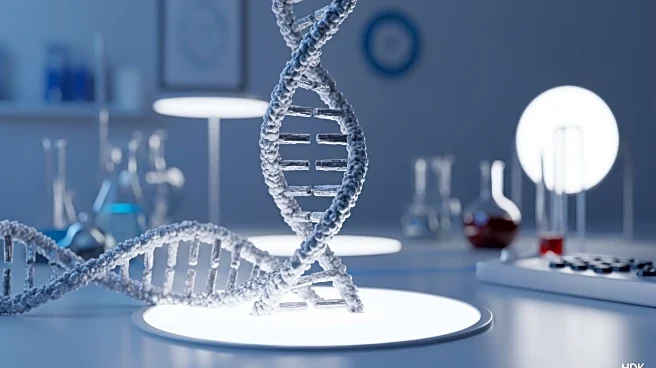What is the story about?
What's Happening?
Researchers from the University of Tokyo have discovered large DNA elements, termed 'Inocles,' residing in the human mouth. These genetic structures are believed to play a crucial role in helping bacteria adapt to the dynamic oral environment. The study, conducted by Yuya Kiguchi and his team, involved advanced sequencing techniques to identify these extrachromosomal DNA elements, which are hosted by the bacterium Streptococcus salivarius. Inocles are significantly larger than typical plasmids and contain genes related to oxidative stress resistance and DNA repair, suggesting they may influence oral health and disease.
Why It's Important?
The discovery of Inocles could have profound implications for understanding the human oral microbiome and its impact on health. Given that these elements are present in approximately 74% of the population, they may play a role in oral health conditions such as cavities and gum disease. Furthermore, the potential link between Inocles and serious diseases like cancer highlights the importance of this research in medical and microbiome studies. Understanding these genetic elements could lead to new diagnostic markers or therapeutic targets, enhancing disease prevention and treatment strategies.
What's Next?
Future research will focus on culturing bacteria containing Inocles to study their functions and interactions within the oral microbiome. Researchers aim to explore how Inocles might spread between individuals and their potential role in oral health conditions. Laboratory experiments and computational simulations will be employed to characterize the unstudied genes within Inocles. This ongoing research could pave the way for novel approaches to managing oral health and understanding the microbiome's influence on systemic diseases.
















